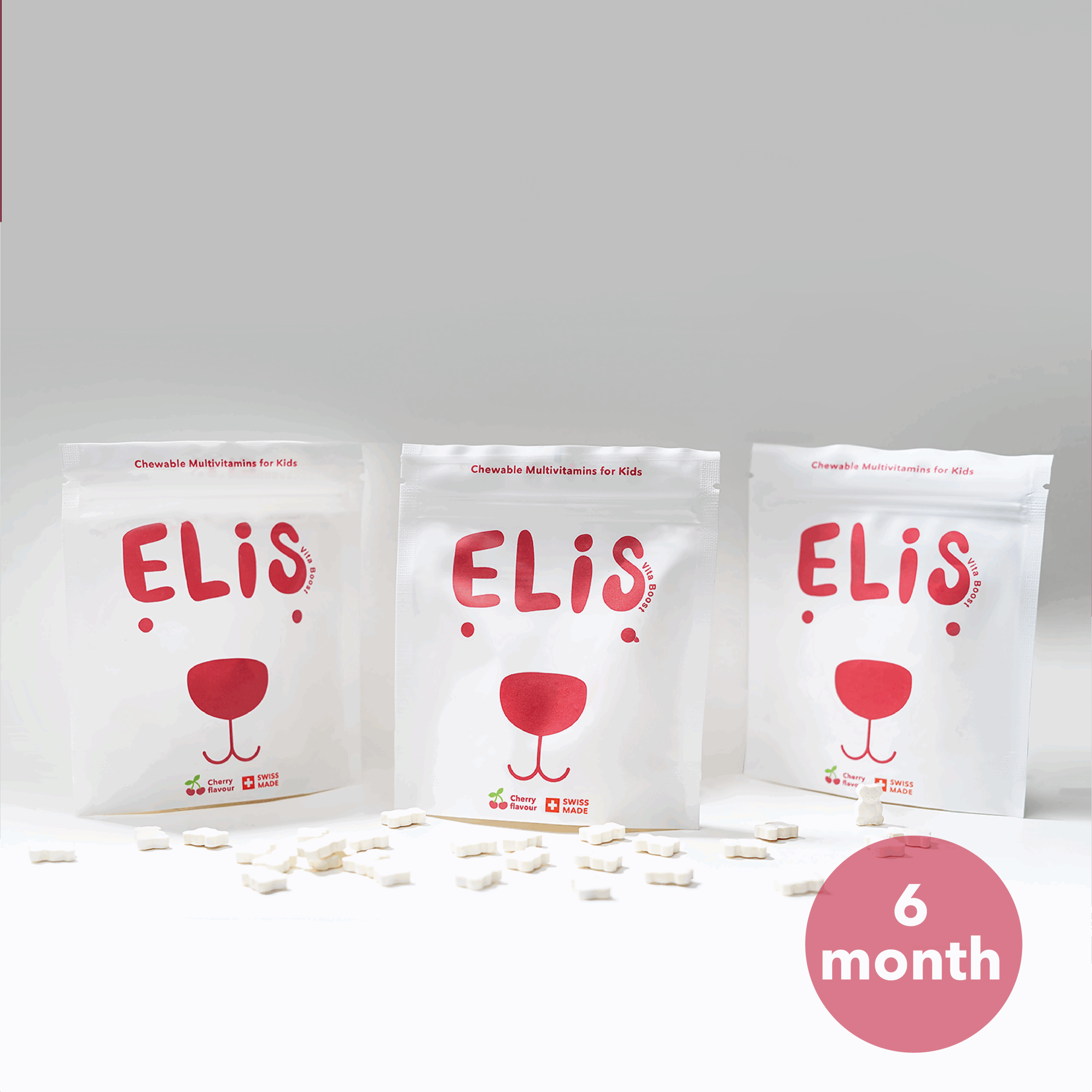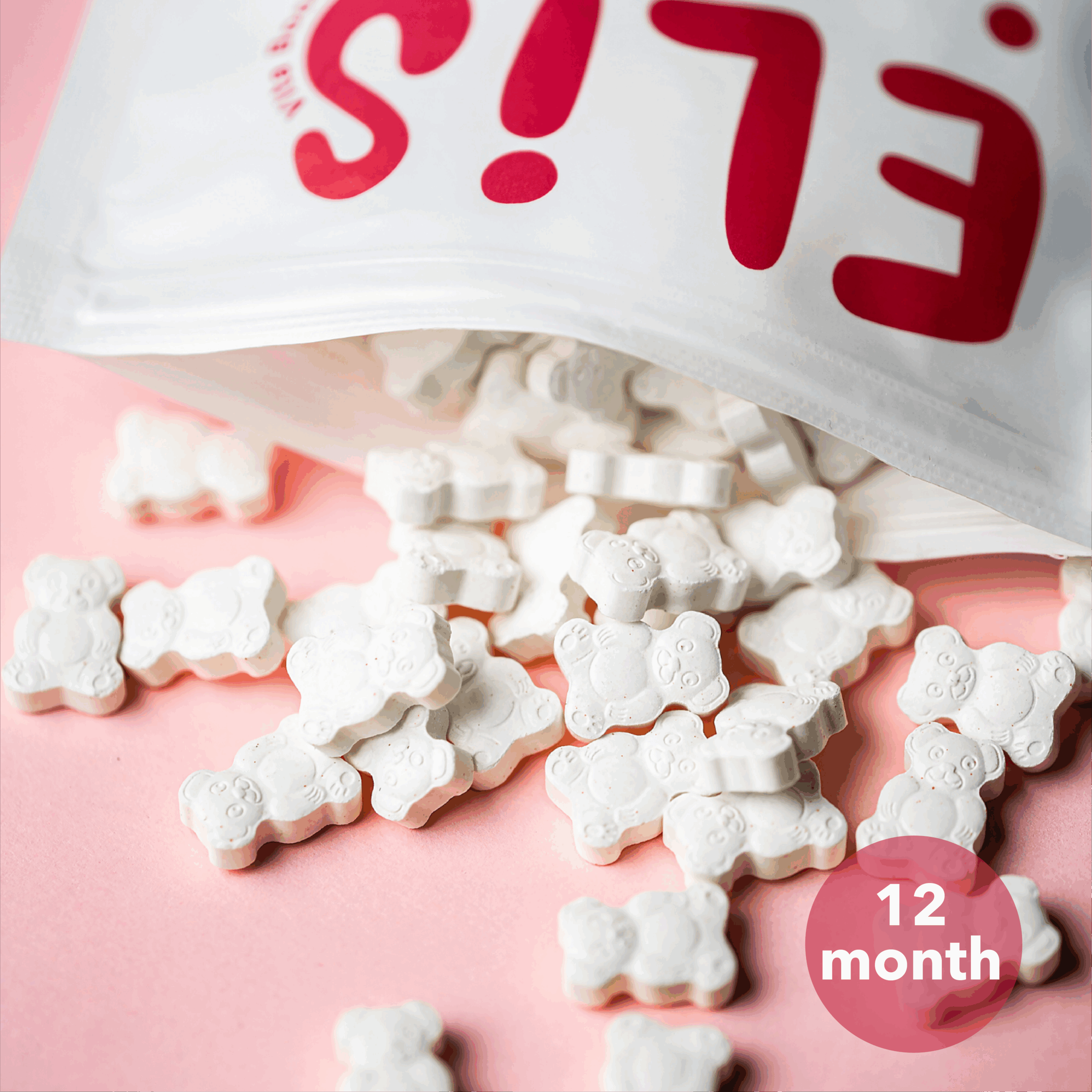Vitamins are a hot topic among parents, often sparking passionate debate. Some believe supplements are essential for every child, while others are convinced they’re just a ploy by the pharmaceutical industry. So who’s right? Together with pediatricians and nutritionists, let’s break down the most common myths and truths about children’s vitamin use.
- 1. MYTH: All children need daily vitamins.
Not every child requires vitamin supplements. Children who eat a balanced, varied diet typically get all the nutrients they need. According to the World Health Organization (WHO), daily multivitamin supplements are not universally recommended for children.
However, in countries like Lithuania – and others located in northern climates – vitamin D is almost universally recommended from October to April due to limited sun exposure.
Studies by the European Pediatric Association show that supplements may be beneficial in specific situations:
- Picky eaters
- Children with dietary restrictions (e.g., vegetarians, vegans, allergies)
- Teens going through growth spurts
- Post-illness or post-surgery recovery
- Children involved in intensive physical activity
ELIS vitamins offer a balanced solution: Each chewable gummy contains 12 essential vitamins and minerals commonly missing in children’s diets.
- 2. MYTH: Natural vitamins are better absorbed than synthetic ones.
Research shows that the body generally absorbs natural and synthetic vitamins equally well. On a molecular level, most synthetic vitamins are identical to those found in nature. For example, vitamin C (ascorbic acid) works the same whether it comes from an orange or a lab.
That said, there are nuances:
- Natural sources (like liver or fish oil) may contain additional beneficial compounds.
- Some vitamins – especially vitamin E and certain B vitamins – exist in multiple forms in natural food but only as a single component in synthetic versions.
- Vitamins consumed with other food compounds may have improved absorption.
3. MYTH: The more vitamins, the better.
Overdosing on vitamins – especially fat-soluble ones like A, D, E, and K – can be harmful.
Potential risks include:
- Vitamin A: appetite loss, headaches, even liver damage
- Vitamin D: excessive calcium in the blood (hypercalcemia)
- Vitamin C: digestive upset and diarrhea
Important: Always read supplement labels carefully and never exceed the recommended daily dose.
ELIS vitamins are made in Switzerland under strict quality controls to ensure accurate, child-safe dosing in every gummy.
4. MYTH: Vitamins can replace a poor diet.
Vitamins are supplements – not substitutes – for real food. No pill or gummy can fully replace the nutrients, fiber, and beneficial compounds found in whole foods like fruits, vegetables, grains, and proteins.
Why food matters more than supplements:
- Whole foods contain thousands of bioactive compounds not found in pills.
- Nutrients in food interact synergistically for better absorption.
- Healthy eating habits form early and last a lifetime.
5. MYTH: Expensive vitamins are more effective than cheaper ones.
Price doesn’t always reflect effectiveness. It may indicate higher-quality ingredients, better taste, or more rigorous manufacturing standards – but the basic vitamin compounds are often the same.
When choosing a supplement, focus on:
- Manufacturer reputation and quality control
- Vitamin form (chewable, liquid, etc.) and ease of use for kids
- Presence of additives (sugar, dyes, preservatives)
- Dosage appropriateness for your child’s age
6. MYTH: All vitamins are completely safe and side effect–free.
While most children tolerate vitamins well, side effects can still occur – especially in sensitive individuals.
According to the European Medicines Agency (EMA), many supplements contain not just active ingredients, but also additives like colorants, flavorings, and preservatives, which can trigger allergic reactions in some kids.
Possible side effects:
- Digestive upset, nausea, or stomach pain
- Allergic reactions to additives
- Interactions with medications (especially iron or calcium supplements)
ELIS vitamins are free from artificial colors, flavor enhancers, preservatives, and added sugars. They’re vegan, lactose-free, and gluten-free – ideal even for children with dietary sensitivities.
7. MYTH: If my child seems healthy, they don’t need vitamins.
Vitamin deficiencies can develop gradually and show only subtle signs. Experts warn that even children who appear healthy may already have low vitamin levels affecting cognitive performance – like memory, attention, and mood.
Watch for these subtle signs:
- Increased fatigue or lack of motivation
- Decline in academic performance
- Slower growth
- Mood swings or irritability
- Dull skin and hair
Why Choose ELIS Vitamins?
- Comprehensive formula: 12 essential vitamins and minerals in one gummy
- Top-tier quality: Made in Switzerland to the highest standards
- Safe and clean: Free from artificial additives and added sugar
- Inclusive: Vegan, lactose-free, and gluten-free
- Easy to use: Just one delicious gummy per day
- Kid-approved: Great taste and fun shape kids love
Support your child’s health the smart way – choose ELIS vitamins, developed with leading pediatric and nutrition experts.
NOTE: This article is not a substitute for medical advice. Always consult a doctor or nutritionist before giving your child any supplements.








